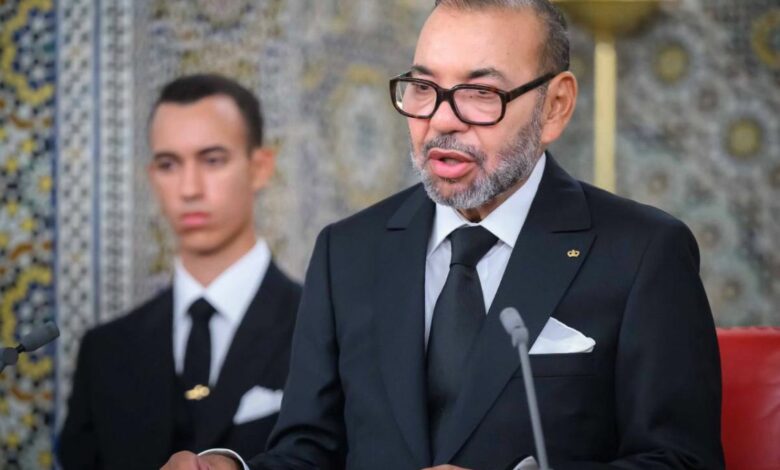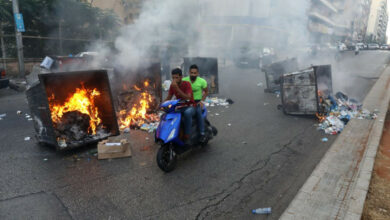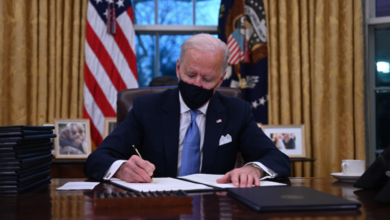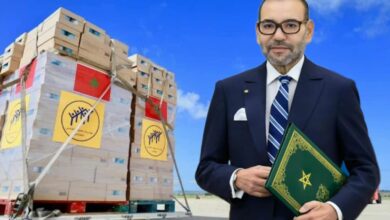Morocco Extends a Hand, Algerian Regime Bites the Fingers: Isolated Generals and Tebboune in a Legitimacy Crisis

Editorial / Iman Alaoui – ALDAR
Once again, Morocco sincerely extends its hand to Algeria, with the wisdom of an ancient state that believes in the virtue of good neighborliness and a shared destiny. And once again, the Algerian regime slams the doors shut, trapped in a hostility manufactured for decades in the laboratories of the military institution. This hostility has become a cover to conceal internal failures and a tool of domination over a people exhausted by Cold War-era rhetoric.
In his latest Throne Day speech, King Mohammed VI sent a clear message of goodwill to the Algerian leadership, affirming Morocco’s readiness to turn a new page—one of responsible and constructive dialogue capable of overcoming bilateral disputes and laying the foundations for a united Maghreb. A Maghreb capable of facing shared challenges and offering hope to the region’s peoples. But in response, the Algerian regime did not issue any official statement. Instead, it launched a massive campaign of provocation through its media and digital networks, attacking Morocco, its leadership, and its people—an attitude that once again reflects the aggressive reflexes of the generals in El Mouradia.
This hostile reaction exposes the nature of the Algerian regime: a military power that survives only by fabricating an external enemy to blame for all its internal failures—from economic paralysis to the collapse of the education and healthcare systems, and the ongoing political crisis embodied in a president, Abdelmadjid Tebboune, who lacks genuine popular legitimacy and is caught between the decisions of generals and the dictates of shadowy circles.
The attack on the royal speech reveals that this regime rejects any prospect of stability or rapprochement, as such openness would threaten its internal blackmail mechanisms and expose its inability to govern without the specter of an enemy. The regime even fears gestures of goodwill, because sincere dialogue would unveil the fragility of its narratives—especially regarding the Moroccan Sahara. On this matter, King Mohammed VI once again reaffirmed unequivocally that the Moroccan identity of the Sahara is neither negotiable nor debatable, and that Moroccan sovereignty is anchored in history, reality, and international legality.
While the Moroccan monarch extended his hand to discuss bilateral issues such as border demarcation and the revival of Maghreb integration projects, the Algerian regime responded with a clear intention to obstruct and escalate—perceiving any gesture of détente as a threat to its very existence and a revelation of its political hypocrisy. This is a regime that claims to defend the “right to self-determination” abroad while brutally suppressing peaceful expression at home, silencing free media, and criminalizing political debate.
A rational reading of the Throne Day speech clearly shows that Morocco is calmly moving toward the future under the banner of stability, development, and regional integration—while the Algerian regime wavers on the edge of a chasm it has dug for itself, wasting time and recycling the same tired refrains. But history does not forgive, and change is inevitable—especially when a state becomes a burden on its own people, and the Algerian citizen realizes that dignity cannot be built on hatred of others.
In the end, the Algerian regime seems captivated by its own downfall, isolating itself in a deadly solitude, while Morocco writes new chapters of regional and international prominence—led by a king who masters the art of governance and extends a hand even to those who respond with insult. Such is the nobility of the strong, and the logic of nations that believe the future is built through dialogue, not provocation—with peoples, not generals.





